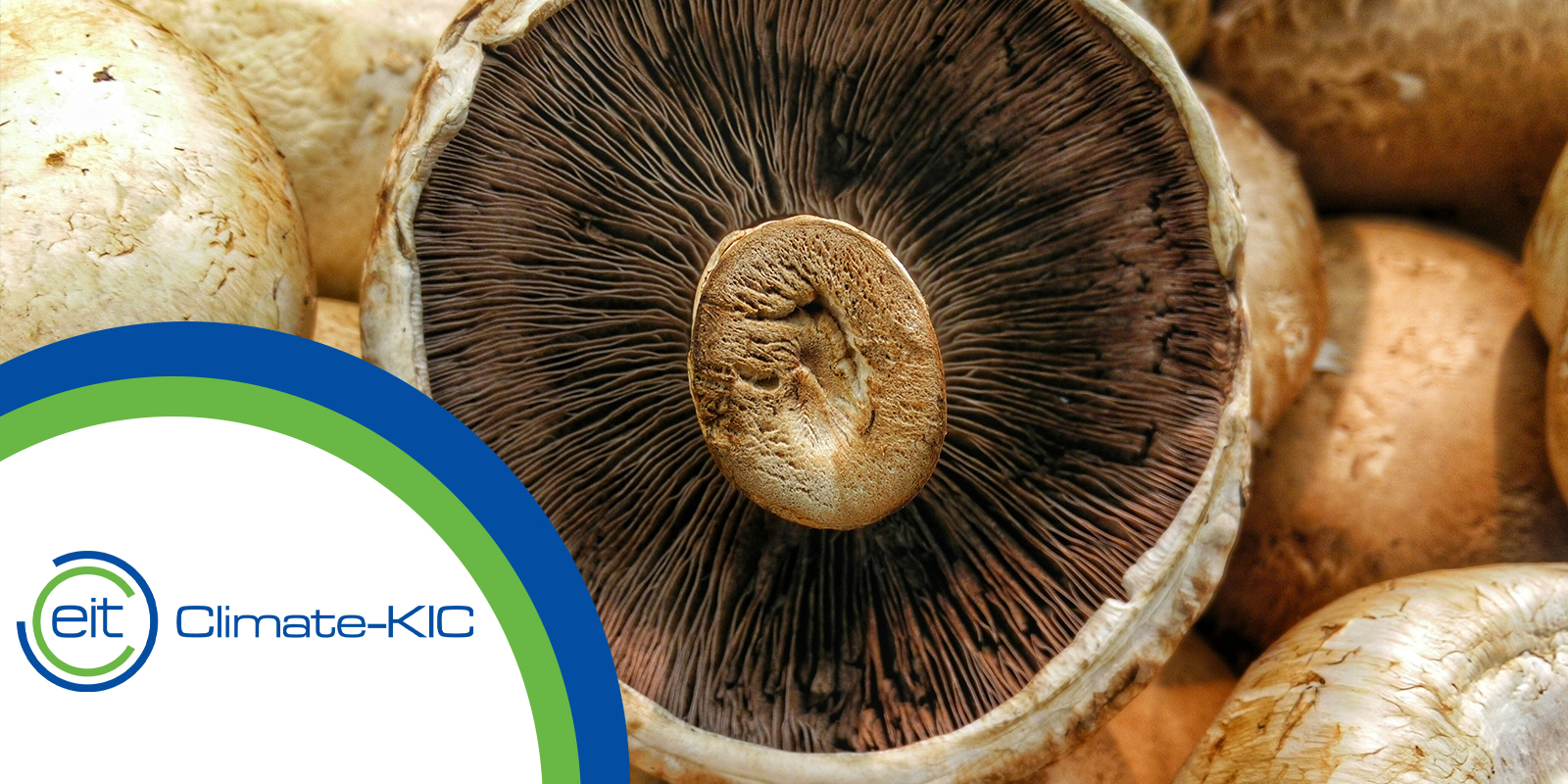EIT Climate-KIC: How mushroom mycelia are transforming industrial materials

A look at BioMyc, a start-up supported by EIT Climate-KIC.
BioMyc explores the potential for biodegradable packaging and construction materials made from agricultural waste and mushroom mycelium. BioMyc’s composite and biodegradable material works as lightweight packaging and insulating products and is proving a serious alternative to styrofoam — an oil-based plastic that releases hydrofluorocarbons in production and never biodegrades.
At the core of BioMyc is a process whereby feedstock from agricultural waste such as straw, corn husks or tobacco stems binds with mushroom mycelium. The fungal organism feeds on the lignocellulose-rich feedstock to produces hyphae — natural filament structures that connect the particles to form a bio-mass composite material. From this, a multitude of products from hard boards to construction materials and bio-leather can be developed.
BioMyc sees a real opportunity to contribute to decarbonisation through accelerating sustainable industrial processes such as combining lignocellulose rich feedstocks and mushroom mycelia.
The idea has won plaudits. BioMyc was honoured as the best green European start-up at the Start-up Europe Awards 2018 by European Commissioner for the Environment, Karmenu Vella, and took second place and EUR 10 000 at the Sustainable Future Forum clim@ competition a month earlier.
The next phase of development for BioMyc is to explore the most effective market for commercial launch. The team has been gathering product requests from companies of different sizes, ranging from a small cosmetics company to one of the largest Bulgarian wine producers.
By the start of 2019, the company aims to create a pilot production facility to explore mass manufacturing parameters in a first product series, before finishing preparations for series A investment by the end of 2019. This investment will help create a demonstrator plant to run its initial production series by the end of 2020.
'We actually just sold our first products, and we’ve had tremendous progress with the lab scale technology that we are looking to build up to a small automated manufacturing facility by next February. The goal is to get ready for Series A funding round and, ultimately, create a demonstrator production plant by the end of 2020', said Atanas Enev, Managing Partner at BioMyc.
BioMyc graduated from the EIT Climate-KIC Regional Innovation Scheme Accelerator in Bulgaria in 2017. With mentoring, support and EUR 92 000 in funding from EIT Climate KIC and Cleantech Bulgaria (EIT Climate-KIC’s local partner), it formed its core team, including a leading biotechnology professor, and produced its first prototypes.
EIT Regional Innovation Scheme
Bulgaria is one of the countries that is part of the EIT Regional Innovation Scheme. The EIT Regional Innovation Scheme (EIT RIS) is the EIT Community’s outreach scheme. The scheme enables the transfer of good practices and know-how from the EIT’s unique approach to boosting innovation. The EIT Regional Innovation Scheme was introduced in 2014 to share good practices and experience emerging from EIT Community activities and to widen participation in our activities across Europe.


 Share this page
Share this page


